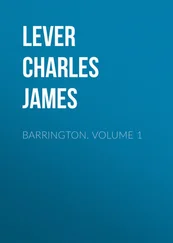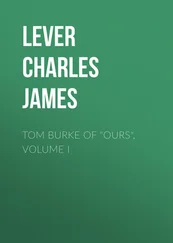Charles Lever - Roland Cashel, Volume II (of II)
Здесь есть возможность читать онлайн «Charles Lever - Roland Cashel, Volume II (of II)» — ознакомительный отрывок электронной книги совершенно бесплатно, а после прочтения отрывка купить полную версию. В некоторых случаях можно слушать аудио, скачать через торрент в формате fb2 и присутствует краткое содержание. Жанр: literature_19, foreign_antique, foreign_prose, на английском языке. Описание произведения, (предисловие) а так же отзывы посетителей доступны на портале библиотеки ЛибКат.
- Название:Roland Cashel, Volume II (of II)
- Автор:
- Жанр:
- Год:неизвестен
- ISBN:нет данных
- Рейтинг книги:5 / 5. Голосов: 1
-
Избранное:Добавить в избранное
- Отзывы:
-
Ваша оценка:
- 100
- 1
- 2
- 3
- 4
- 5
Roland Cashel, Volume II (of II): краткое содержание, описание и аннотация
Предлагаем к чтению аннотацию, описание, краткое содержание или предисловие (зависит от того, что написал сам автор книги «Roland Cashel, Volume II (of II)»). Если вы не нашли необходимую информацию о книге — напишите в комментариях, мы постараемся отыскать её.
Roland Cashel, Volume II (of II) — читать онлайн ознакомительный отрывок
Ниже представлен текст книги, разбитый по страницам. Система сохранения места последней прочитанной страницы, позволяет с удобством читать онлайн бесплатно книгу «Roland Cashel, Volume II (of II)», без необходимости каждый раз заново искать на чём Вы остановились. Поставьте закладку, и сможете в любой момент перейти на страницу, на которой закончили чтение.
Интервал:
Закладка:
“What! you kept it, then?” cried Cashel.
“Of course I did, sir. It is a document scarce inferior to a deed of title; for, although Mr. Corrigan has nothing to substantiate a claim at law, it is incontestable that his family were the original owners of this estate.”
Cashel took the paper from Kennyfeck’s hand, and seemed to peruse it for some minutes, and then approaching the fire he threw it into the blaze, and pressed it down with a poker till it was consumed; while Kennyfeck, too much consternated to utter a word, stood the personification of terror-struck astonishment.
“You have burnt it, sir!” said he at last, in a whisper.
“Why not, sir?” cried Cashel, rudely. “Should I have made use of it against the man who wrote it, or against his heirs, if by chance they should seek one day to dispute my right?”
A deep sigh was all the reply Kennyfeck could make.
“I understand your compassion well,” said Cashel, scornfully. “You are right, sir. It was the buccaneer, not the gentleman, spoke there; but I ‘m sick of masquerading, and I long for a little reality.”
Without waiting for a reply, Roland left the room, and wandered out into the park.
CHAPTER IX. THE BURNT LETTER – “GREAT EXPECTATIONS”
“‘Like Dido’s self,’ she said, ‘I’m free!
Trojan or Tyrian are alike to me.’”
There was but one species of tyranny Mr. Kennyfeck ever attempted in his family: this was, to shroud with a solemn mystery every little event in his professional career which he saw excited any curiosity with his wife and daughters. It was true that on such occasions he became a mark for most sneering insinuations and derisive commentaries, but he rose with the dignity of a martyr above all their taunts, and doubtless felt in his heart the supporting energy of a high-priest standing watch over the gate of the Temple.
The few pencilled lines by Cashel, which had summoned him to the meeting recorded in the last chapter, he threw into the fire as soon as he had read, and then arising from the breakfast-table, dryly observed, —
“Don’t wait breakfast, Mrs. Kennyfeck; I shall not be back for some time.”
“Another secret, Mr. Kennyfeck?” said his wife, scoffingly.
He only smiled in reply.
“It ought to be a duel, at least, pa,” said his eldest daughter, “from the urgent haste of your departure.”
“Or a runaway couple, who wish to have the settlements – ”
“Is that all you know of the matter, Livy?” said her sister, laughing heartily; “why, child, your Gretna Green folks never have settlements – never think of them till six months later, when they are wanting to separate.”
“Is there any occasion for mystery in this case?” rejoined Mrs. Kennyfeck, haughtily.
“To be sure there may, my dear,” broke in Aunt Fanny; “there ‘s many a dirty thing the lawyers have to do they ‘d be ashamed to own before their families.”
Even this did not move Mr. Kennyfeck, and, although from the way he nestled his chin behind the folds of his white cravat, and a certain scarcely perceptible shake of the head, it was clear he longed to refute the foul aspersion.
“I suppose you will appear at dinner, sir?” said Mrs. Kennyfeck, with her grandest air.
“I hope so, Mrs. Kennyfeck,” was the mild answer.
“Without you should take it into your head, pa, to enter into rivalry with Mr. Linton, and stay away, heaven knows where or how long,” said Miss Kennyfeck.
Mr. Kennyfeck did not wait for more, but left the room with an air whose solemnity well suited any amount of secrecy.
“Is there a carriage at the door?” said Mrs. Kennyfeck.
“No, mamma; there are three saddle-horses – one with a side-saddle. That odious Miss Meek!” exclaimed Miss Kennyfeck; “what Lord Charles can see in her I cannot conceive. To be sure, she saves a stable-boy the more, and that to him is something.”
“Has your father gone out by the back terrace?” resumed Mrs. Kennyfeck, one only theme occupying her thoughts.
Olivia retired into an adjoining room, and soon returned, saying, —
“No, ma; there’s no one there, except Sir Andrew and Lady Janet, taking their morning walk.”
“Their run, rather, my dear,” chimed in Miss Kennyfeck, “for she chases the poor old man up and down with a cup of camomile tea, which either scalds or sets him a-coughing. I ‘m sure that tiresome old couple have awoke me every day the last week with their squabbling.”
“Step down into the library, my love,” said Mrs. Kennyfeck to her younger daughter, “and bring, me up the ‘Post’ or the ‘St. James’s Chronicle.’”
“And if you meet Phillis, Just ask if he saw your father, for he forgot his gloves.” And, suiting the action to the word, Aunt Fanny dived into a cavern of an apron-pocket, and drew out a pair of knitted things without fingers, which she offered to Olivia.
“Do no such thing, Miss Olivia Kennyfeck,” said her mamma, with an air of imposing grandeur.
“Ma wants the newspaper, Olivia, and is not thinking of papa,” said Miss Kennyfeck; and her eyes sparkled with a malicious fun she well knew how to enjoy.
As Miss Olivia Kennyfeck left the room, her sister approached the fireplace, where a small charred portion of the note thrown down by her father was yet lying. She took it, and walking toward the window, examined it carefully.
And while we leave her thus occupied, let us, for the reader’s information – albeit he may deem the matter trivial – give the contents as Cashel wrote them: —
Dear Mr. Kennyfeck, – Make my excuses to Mrs. Kennyfeck and the Demoiselles Cary and Olivia, if I deprive them of your society this morning at breakfast, for I shall want your counsel and assistance in the settlement of some difficult affairs. I have been shamefully backward in paying my respectful addresses to the ladies of your family; but to-day, if they will permit, I intend to afford myself that pleasure. It is as a friend, and not as my counsel learned in law, I ask your presence with me in my library at ten o’clock. Till then,
Believe me yours,
R. C.
Now, of this very commonplace document, a few blackened, crumpled, frail fragments were all that remained; and these, even to the searching dark eyes of Miss Kennyfeck, revealed very little. Indeed, had they not been written in Cashel’s hand, she would have thrown them away at once, as unworthy of further thought. This fact, and the word “Olivia,” which she discovered after much scrutiny, however, excited all her zeal, and she labored now like an antiquarian who believes he has gained the clew to some mysterious inscription. She gathered up the two or three filmy black bits of paper which yet lay within the fender, and placing them before her, studied them long and carefully. The word “settlement” was clear as print.
“‘Olivia and ‘settlement’ in the same paper,” thought she; “what can this mean?
“Come here, mamma – Aunt Fanny – look at this for a moment,” said she, eagerly; and the two ladies approached at her bidding.
“What is that word?” she said to Mrs. Kennyfeck; “is it not ‘Olivia’? Don’t you see the end of the ‘l’ has been burned away, but the rest is quite plain?”
“So it is – upon my life! – and in Cashel’s hand, too!” exclaimed Mrs. Kennyfeck.
“And what is that?” asked Miss Kennyfeck, triumphantly, pointing to another word.
Aunt Fanny, with her spectacles on, bent down, and examined it long.
“‘Battlement.’ That is ‘battlement’ as clear as day,” said she.
“What nonsense, aunt – it is ‘settlement.’ Look at what you call a ‘b’ – it is an ‘s.’”
Читать дальшеИнтервал:
Закладка:
Похожие книги на «Roland Cashel, Volume II (of II)»
Представляем Вашему вниманию похожие книги на «Roland Cashel, Volume II (of II)» списком для выбора. Мы отобрали схожую по названию и смыслу литературу в надежде предоставить читателям больше вариантов отыскать новые, интересные, ещё непрочитанные произведения.
Обсуждение, отзывы о книге «Roland Cashel, Volume II (of II)» и просто собственные мнения читателей. Оставьте ваши комментарии, напишите, что Вы думаете о произведении, его смысле или главных героях. Укажите что конкретно понравилось, а что нет, и почему Вы так считаете.












